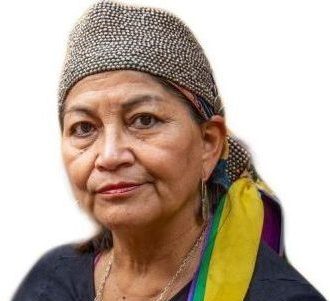
Elisa Loncón
Elisa Loncón is an indigenous Mapuche from Chile. She currently works as a university professor and linguist. But above all, she is a politician and activist representing the indigenous Mapuche people. In July 2021, she was elected President of the Constituent Assembly in the National Assembly with an absolute majority.
Thus, Elisa Loncón made history in Chile by completing one of the most important and complex tasks in the country’s recent history as an indigenous woman. She wrote her greeting to the people in the language of her indigenous people and emphasised the beginning of a change through the drafting of the constitution, which was still being worked out during the Pinochet dictatorship. Elisa Loncón previously stressed her commitment to a diverse, multicultural and multi-ethnic Chile and, consequently, to promoting the inclusive nature of the Assembly as well as understanding the Assembly as a means of channelling social dialogue.
Despite the failure of the new constitution on 4 September 2022, Elisa Loncón is committed to advancing the construction of a pluralistic Chile, which is unthinkable without the inclusion of indigenous peoples. As a woman and part of an indigenous community, Loncón is perceived as a symbol of hope.
She was named one of the 25 most influential women in 2021 by the Financial Times for her heroic commitment and meaningful impact.
Elisa Loncón grew up in poor conditions and experienced large parts of her childhood and youth during the Pinochet dictatorship. After experiencing discrimination herself as a child due to her origin, she now campaigns for the rights of indigenous communities.
Loncón has studied at various universities in North and South America as well as in Europe and received a Bachelor’s and Master’s degree in linguistics as well as a doctorate in humanities from Leiden University and a doctorate in literature from the Pontificia Universidad de Chile. In her academic work, Elisa Loncón addresses the rights of indigenous people, mainly Mapuche, in various areas such as language, gender roles or homosexuality.